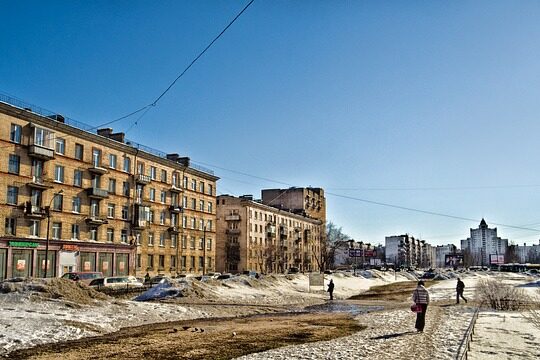Living in the Russian Federation
Living abroad means being part of a different society, adapting to a different culture, and speaking another language. Of course, some countries are more similar than others, but there are always some minor differences. Although Saint Petersburg is located in the European part of Russia and is considered to be the most European city of Russia, living in this place is quite different from living in The Netherlands.
Written by: Bas Dietzenbacher
Russia is by far the largest country in the world in terms of area, almost twice as large as the subsequent country Canada. Saint Petersburg was established just over 300 years ago and is currently with more than 5 million inhabitants Russia’s second largest city after Moscow. It was the governmental capital of Russia for a long time and still serves as its cultural capital. Saint Petersburg was founded to provide Russia access to the Baltic Sea via the Gulf of Finland and the design of its canals is based on the canal district of Amsterdam. This does not mean that Saint Petersburg is similar to any Dutch city.
The first obvious dissimilarities between Russia and The Netherlands are that Dutch people need a visa to enter the country and that the language uses the Cyrillic script instead of the Latin alphabet. A second observation reveals some minor distinctions: tea is the standard and coffee is the alternative, the social medium LinkedIn is blocked, and the ground floor is referred to as the first floor. Other differences only become clear when you stay somewhat longer or get to know the Russian people.
In line with what you might expect, Russia is a very bureaucratic and inefficiently organized country. Each time you enter the country you need to register yourself at your residence address, it takes a lot of time and effort to arrange your banking affairs, the heating is centrally controlled causing people having their windows opened all winter, you need to pay a fee when you take cash from an ATM of another bank, and there is a huge traffic chaos in the larger cities. Recently, they discovered that I had not yet signed a form declaring that I am not a terrorist, after living in their country for four months. I was locked up in a registration office on the other side of the city for four hours before I could sign such a form. Some argue that the country is actually very efficiently organized, but that the government pursues a different goal: controlling the citizens instead of serving them.
In contrast to what you might expect, Russian people do not drink vodka all day long, do not actively support Putin in public, and are not extremely unfriendly. Instead, they may as well drink beer, do not have a strong opinion about politics, and are actually quite nice to deal with. Moreover, they are generally very superstitious. Many statues and objects would bring good luck when you touch them, sitting on a stone would lead to cystitis, women sitting at the corner of a table would nevermore find a lover, and whistling at home would blow the money out. Furthermore, there is something peculiar with shaking hands. When a man enters or leaves the room, he normally only greets the other men by shaking hands, but skips the women. The first time my boss passed by my office, I opened the door and reached out my hand to meet him. He took my hand and literally pulled me out of my office to subsequently shake my hands in a gentle way. Shaking hands in doorways would namely bring bad luck…




